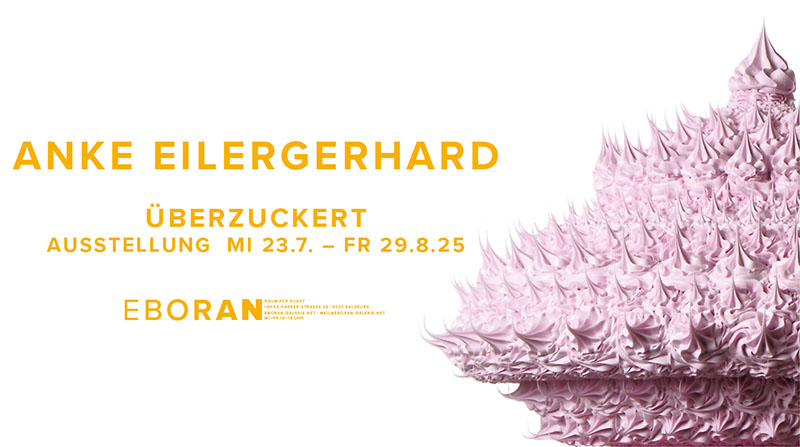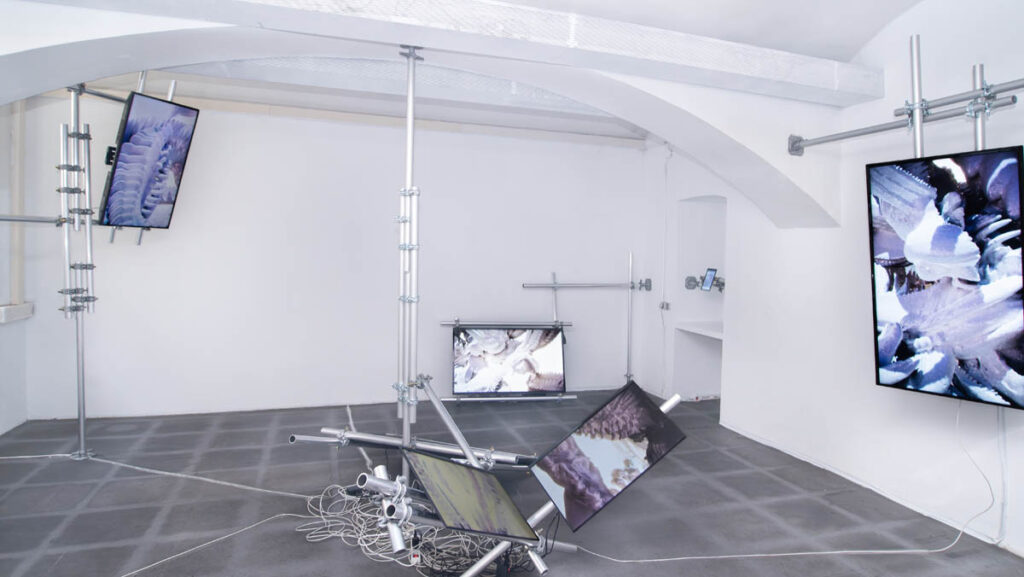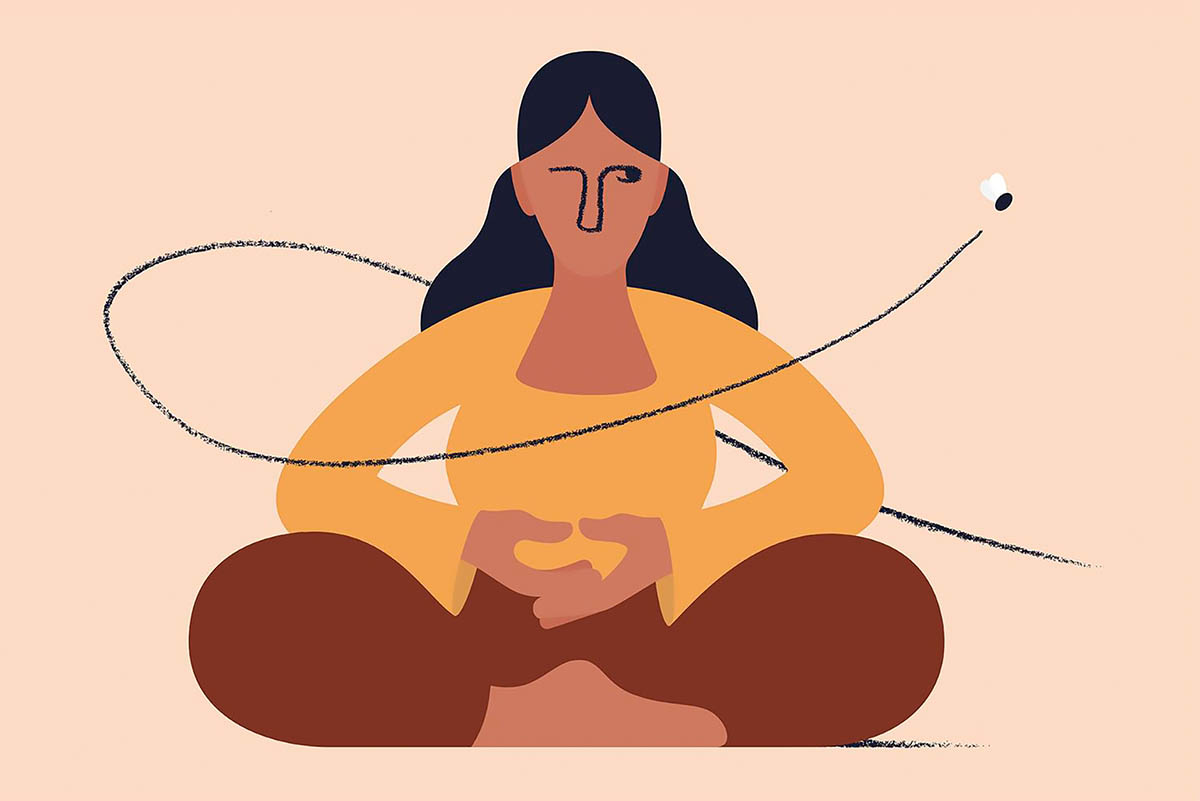
Well known for his unique blend of wit and simplicity in form, he has earned prestigious recognition, including a Joseph Binder Award and a silver medal from the Society of Illustrators in New York. Since graduating from the University of Applied Arts Vienna, he has maintained a practice between commissioned and personal work, developing a distinctive yet eclectic visual voice of his own. He lives in Vienna, Austria.
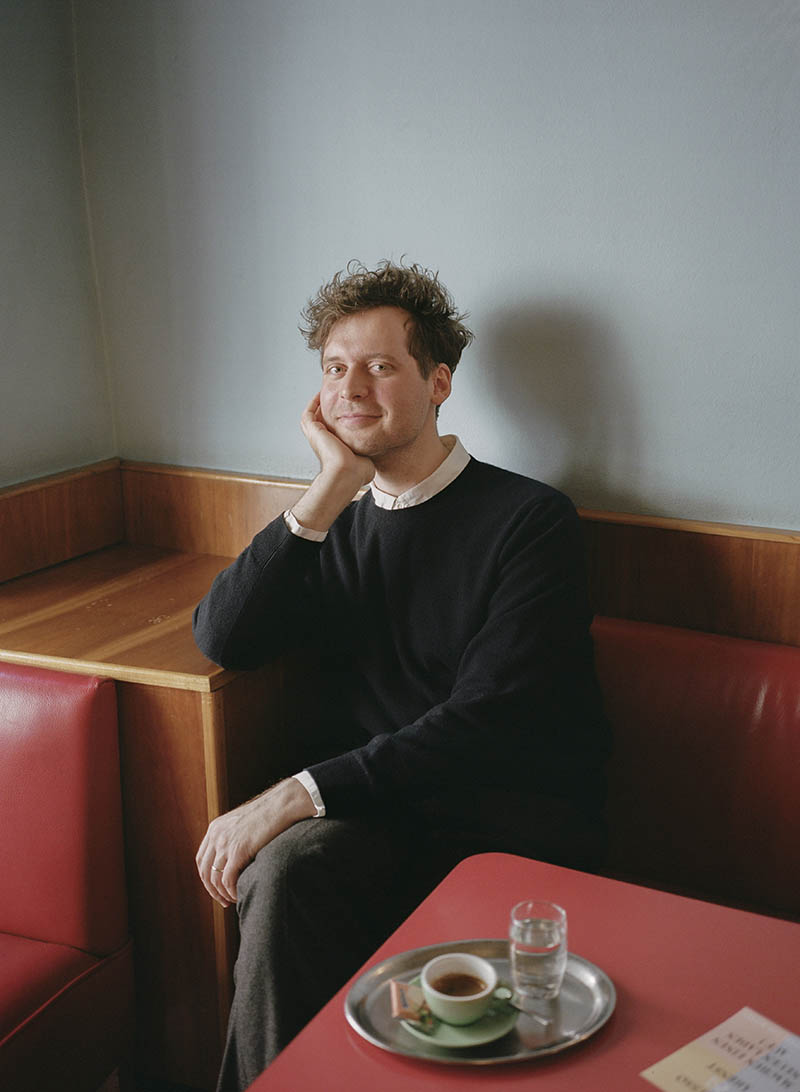
How would you describe your work?
I see myself as a visual communicator, using illustration as a visual language. That said, I like to think that I wear different hats. In editorial and commercial illustration projects, I take on the role of a translator, helping others tell their stories by transforming given content into hopefully compelling imagery. Whether for an article, a campaign, or an entire book, my illustrations aim to effectively convey their intended meaning. They’re often conceptual and distilled into a single graphic idea. In personal projects, like exhibitions or publications, I switch to the role of an author, becoming a visual storyteller. I recently wore this hat when I worked on my first book, ‚Between The Lines,‘ an autobiographical visual essay exploring how I perceived a mental health crisis in my family, in both drawings and words. Regardless of the project, I seek to create work that is on point, poetic and rich with engaging visual metaphors.
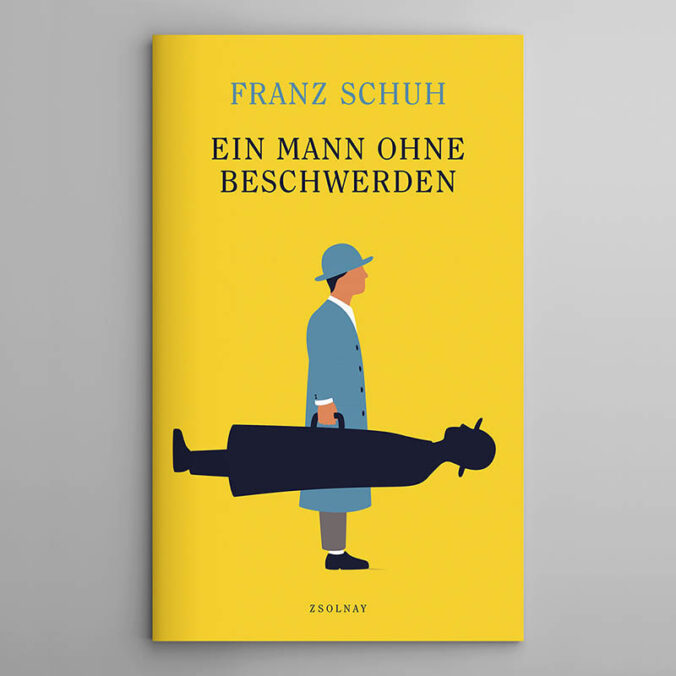
Cover illustration for Franz Schuh’s latest book „Ein Mann ohne Beschwerden“, commissioned by Zsolnay 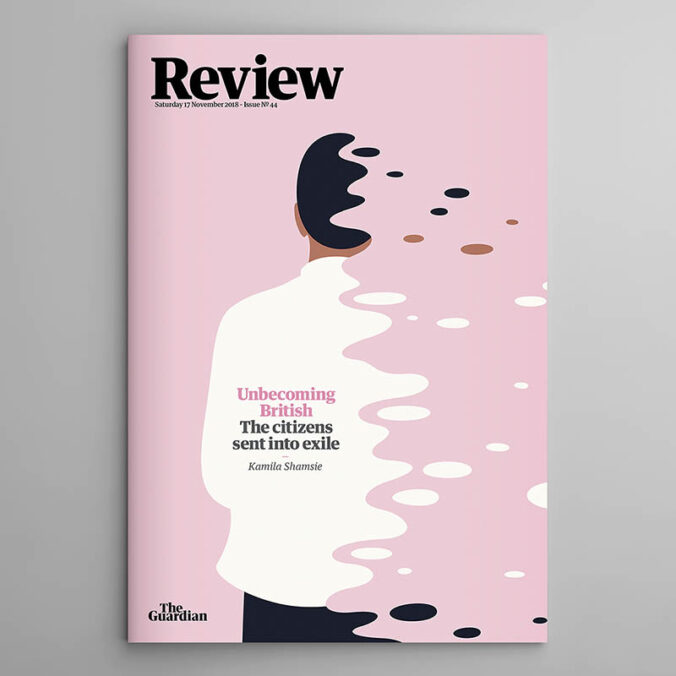
Unbecoming British; commissioned by The Guardian 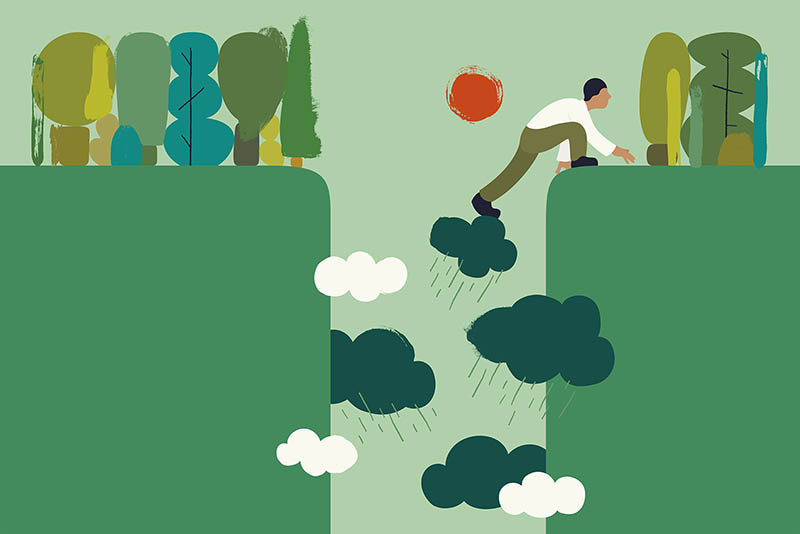
Resilience; commissioned by Focus
Are there certain topics or motifs that you particularly enjoy exploring in your illustrations?
Although I’m used to covering a broad range of topics in my illustration practice, I’ve always had a particular interest in capturing the sensations of the human mind. I’m interested in exploring what we think and feel, both consciously and unconsciously, using imagery and visual metaphor. I’m drawn to topics in the fields of psychology, mental health, and the broader aspects of the human condition.
How do you approach a new project?
First, I try to figure out what the story or message I want to convey is, and then I stick with it. Ideally, I surprise myself with how I tell the story. Almost every project starts with pencil on paper. I spend a lot of time thinking and sketching before moving on to final illustrations. I accumulate ideas before I distill them, reducing until there’s nothing left to take away.
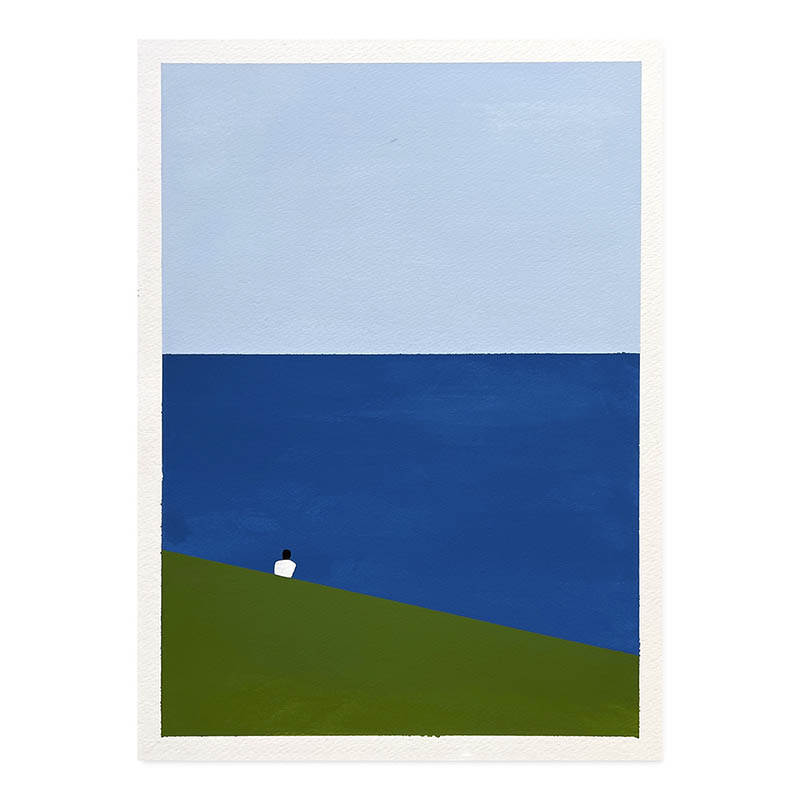
Bodensee, Bregenz; Acrylic-Gouache on paper, 2022, 25,2 * 34,9 cm 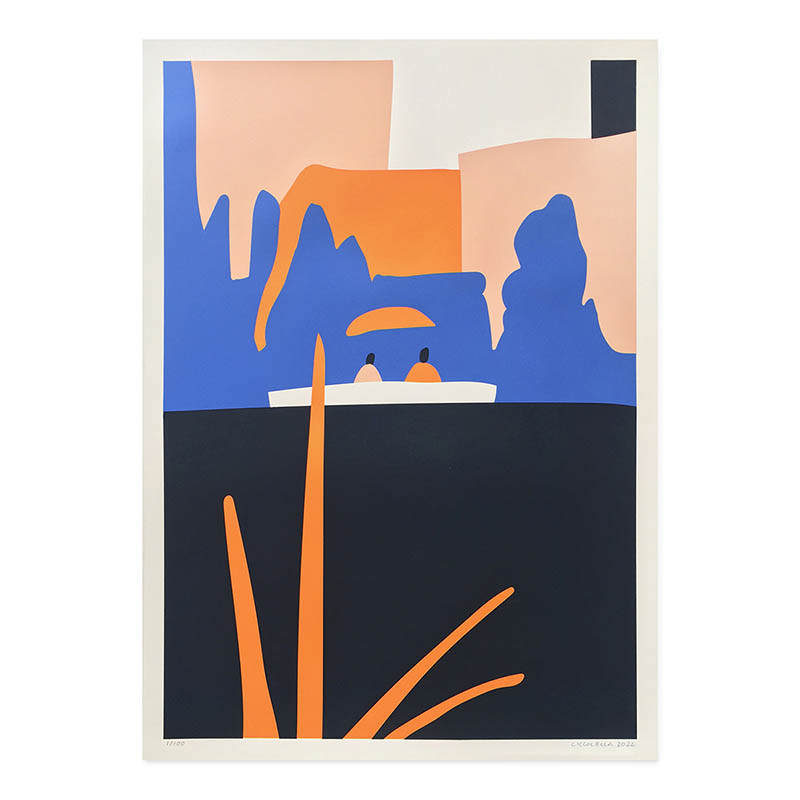
Kaiserwasser, Wien; 4 color screen print, 2022, 50*70 cm
What role does digital technology play in your creative process?
I make use of digital technology in all of my projects – sometimes more extensively, sometimes less. However, I only turn to the computer once I have a clear vision of what I want to draw. I appreciate what happens between the mind, the eye and the hand during the sketching of ideas, and I haven’t discovered a satisfying way to replicate that initial phase of my process on the computer (yet). The execution of an idea always happens on the computer, though. I like that the previous step is always just a shortcut away. I think that takes away the fear of dead ends and leads to surprising results. I’m also in a constant process of building a library of shapes, scanned elements, marks created by hand, with different tools, that I sometimes digitally incorporate into my illustrations.
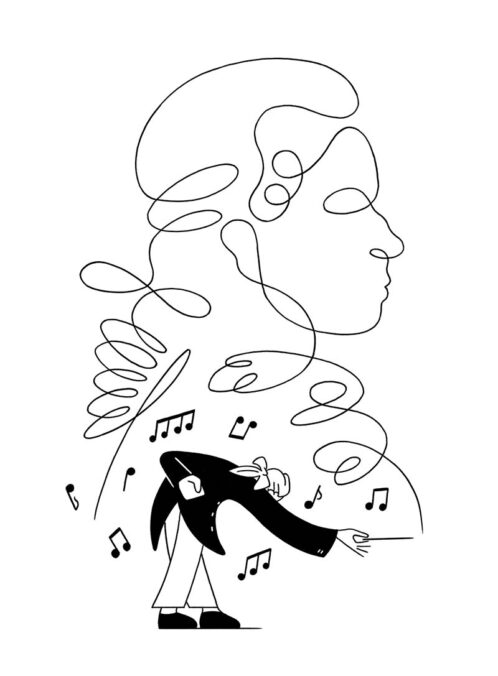
Mozart Orchestra; commissioned by Vienna Tourist Board 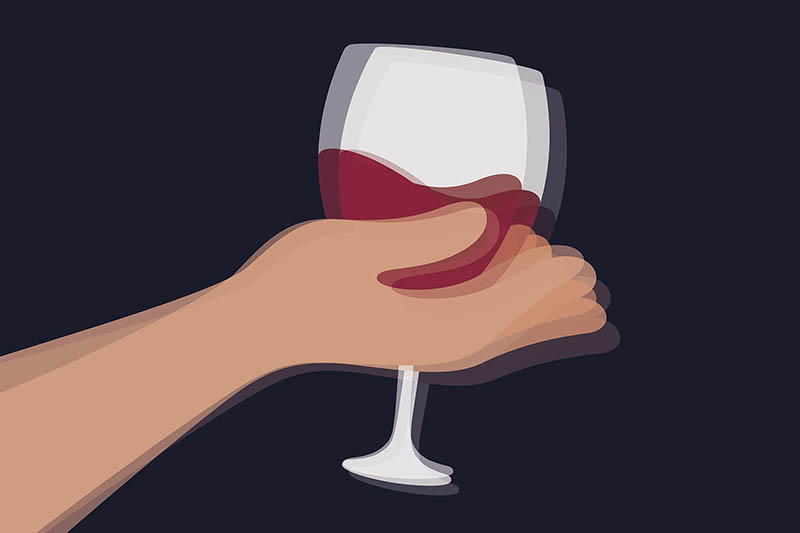
How Much Is Too Much?; commissioned by The New York Times
Which projects or collaborations are particularly important to you personally?
In terms of commissioned work, I love projects that spark my curiosity and make me feel like I’m learning new things. This is often the case with editorial work. I’ve come to realize that, regardless of how big a brand or how well-known a media outlet, it always boils down to the people I get to work with. If there’s a relationship of trust, the process becomes more enjoyable, and I believe this translates into a better outcome. In order to be able to visually tell a story it has to align with my values, so I only take on work that does. I find it important to maintain a balance between commissioned and personal projects. The latter allow me to delve into topics that I find relevant at a given time and help me steer the ship into the direction that feels right. Currently, the focus of my interest is on mental well-being, resilience and how we cope with trauma.
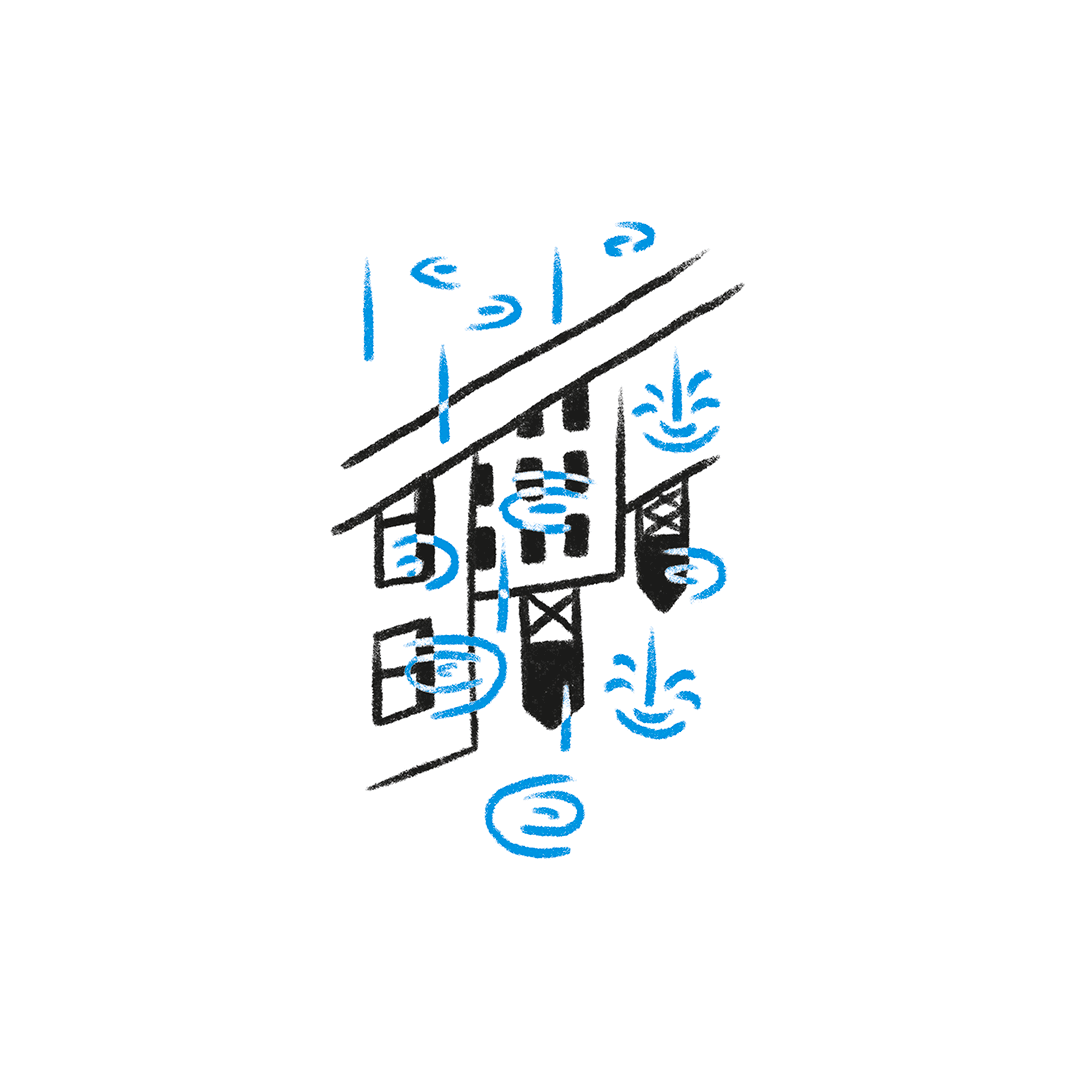
How do you experience Vienna and what role does the city play in your artistic development?
Vienna, to me, feels like that inviting, gently worn and slightly patinated leather sofa that makes it incredibly difficult to get off. I appreciate that a comfortable life seems to be within reach for a broad spectrum of society here. This creates an environment where fresh, interesting, and creative ventures can flourish. Sometimes, Vienna’s comfort might even be a tad too overwhelming! While I love this city, I also like to expose myself to the drive and effort required in other cities, such as New York, for a few weeks every now and then. Thirteen years ago, I moved to Vienna to pursue my studies, and I’ve chosen to make it my home. The city’s contemporary atmosphere and its cultural heritage definitely play a significant role for me. I find my work deeply inspired by Viennese modernism and early poster art, particularly the graphic work of Wiener Werkstätte, Secession, and artists like Julius Klinger, Hermann Kosel, and Joseph Binder.
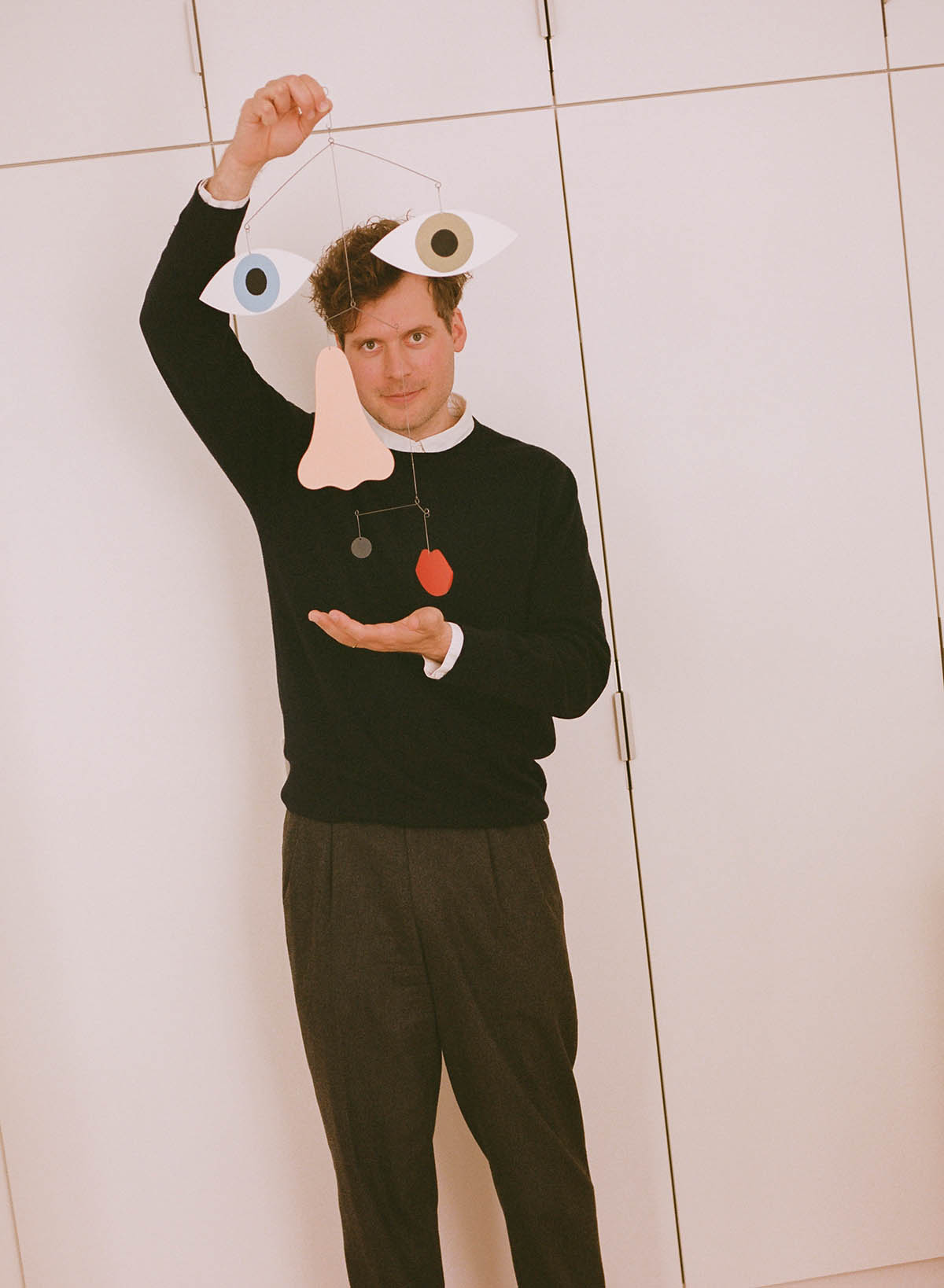
What are you working on at the moment? Any plans for 2024?
I have recently completed the illustrations for a book by Frederik G. Pferdt, Google’s first Chief Innovation Evangelist. In this book, he introduces a forward-thinking mind state to navigate uncertainty intentionally, turn challenges into opportunities, and actively shape a desired future through optimism and curiosity. Frederik is an inspiring human being, and this collaboration is deeply aligned with my own values, making it particularly close to my heart. The book is set to be released mid-next year by Harper Collins in the US. Currently, I’m also working on a series of illustrations for a cover story about resilience in the upcoming issue of Focus magazine in Germany, a theme I plan to further explore in my personal practice. Looking ahead to 2024, I’m very excited about an extended stay in NYC!
Francesco Ciccolella – www.francescociccolella.com, www.instagram.com/francescociccolella



